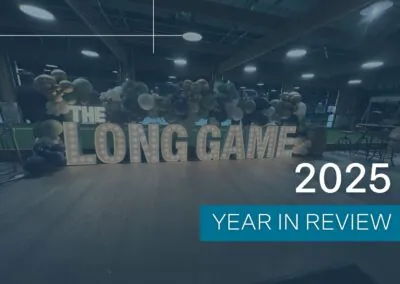Over the course of the last few decades, many investors have experienced significant success in the world of real estate ownership. The cash flow, appreciation, and tax benefits provided can be powerful; however, owners of appreciated real estate often find themselves in a bind as they consider divesting their portfolio. After years of long-term ownership, investors are ready to sell and move out of the active oversight of their property, but often have very little basis remaining and as a result can face material capital gain taxes. Though there are ways to potentially defer the realization of these gains, conversations of changes to the tax code leave many in this situation wondering: “what options do I have?”
What tax-deferred strategies exist?
Possible tax deferred exit strategies include selling the property in a 1031 exchange of “like-kind” property, investing in a Delaware statutory trust (DST) with the proceeds from sale, or contributing the property into an UPREIT. Although each of these exit strategies may potentially achieve tax deferral, they also come with some common shortfalls.
Common shortfalls of other tax deferred exit strategies:
- 1031 Exchange – Timing constraints, trade risk, single asset risk and require active management or oversight
- DSTs – May have high fees and limited appreciation potential
- UPREITs – Historically subject to public market volatility
In response to the downfalls of the current tax-deferred exit strategies that exist in the marketplace, MLG Capital created the Legacy Fund. Investors will participate in the Fund by contributing property, or ownership interest in property, in exchange for units of the diversified Legacy Fund. This contribution is generally tax-deferred, allowing investors to potentially avoid recognizing capital gains. Though it sounds like an UPREIT, the Legacy Fund structure provides a unique set of benefits when compared to the other options in the market. MLG’s Billy Fox recently wrote about why contributing to the Legacy Fund can be a smart financial decision.
Why is the Legacy Fund a superior alternative?
- Passive Ownership – Relieve yourself of the day-to-day burden of being a landlord. MLG has 30+ years of professional management experience to draw from to maximize the value of your asset
- Diversification – The Legacy Fund is diversified by property type and geography, spreading investment risk over several assets
- Potential Tax Benefits –
- Contributions to the Legacy Fund will generally be tax-deferred, relying on section 721 of the IRS code
- The depreciation of new assets acquired by the Fund may reduce current income taxes. Participating in the Legacy Fund improves the likelihood of generating material beneficial ordinary tax losses, one of the key benefits of owning real estate
- Estate Planning – Investors with a taxable estate can benefit from this structure as well. Becoming a minority owner and reducing the marketability of ownership shares can result in up to a 30% reduction in taxable estate value
Understanding the Risks of Private Investments: What You Need to Know
Investing in private offerings, like our Fund, Legacy Fund, Co-Investment, or 1031 Exchange Program, comes with its share of risks and uncertainties. While we can’t cover every potential risk here, it’s important to be aware that the real estate industry is influenced by many factors. These include market fluctuations, operational challenges, interest rate changes, occupancy levels, inflation, natural disasters, capitalization rates, regulatory shifts, and tax considerations. Some of these risks may not even be identifiable at this time and could lead to outcomes different from expectations.
Tom Pugh is a Vice President at MLG Capital, focusing on the analysis of all Legacy Fund contributions. He also spends his time working with a number of our individual investors in the Midwest. In his free time, Tom enjoys spending time outdoors and keeping up with his new puppy, Juneau.
This blog and associated materials are being presented for informational purposes only and is not an offer to sell interests in a security. A private real estate investment is subject to risks and uncertainty many of which are not outlined herein including, without limitation, risks involved in the real estate industry such as market, operational, interest rate, occupancy, inflationary, natural disasters, capitalization rate, regulatory, tax and other risks which may or may not be able to be identified at this time and may result in actual results differing from expected. Private investments are highly speculative, illiquid, may involve a complete loss of capital, and are not suitable for all investors. Prospective investors should conduct their own due diligence and are encouraged to consult with a financial advisor, attorney, accountant, and any other professional that can help them to understand and assess the risks associated with any investment opportunity.
Past performance is not indicative of future results. Securities offered through North Capital Private Securities, member FINRA/SIPC. Advisory services offered through MLG Fund Manager LLC, an investment adviser registered with U.S. Securities & Exchange Commission.


